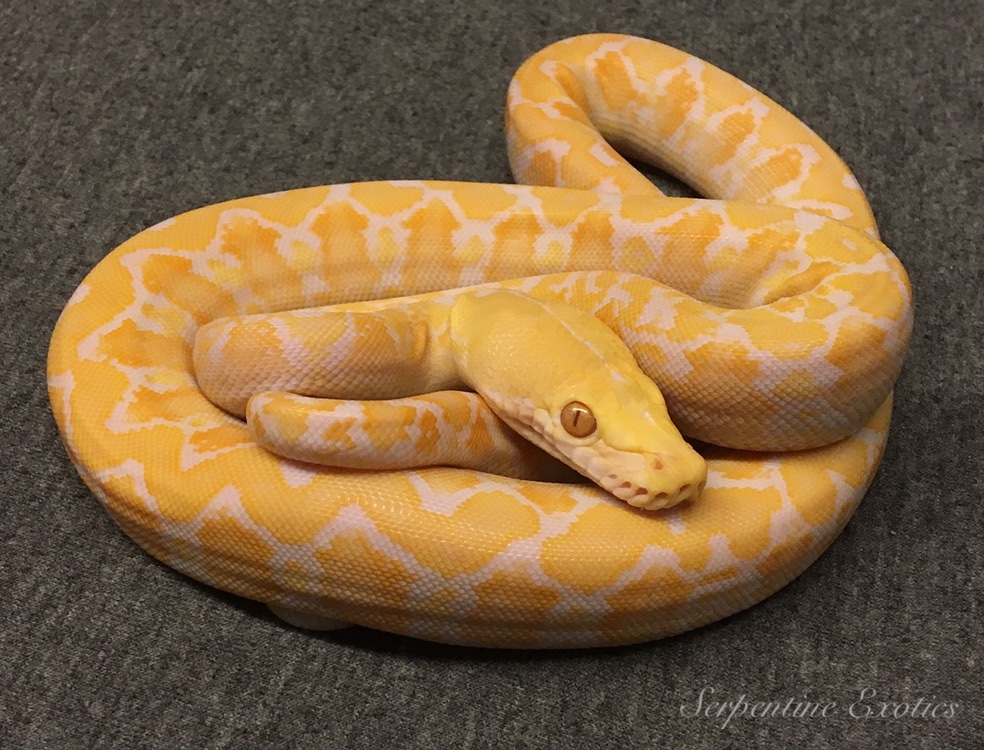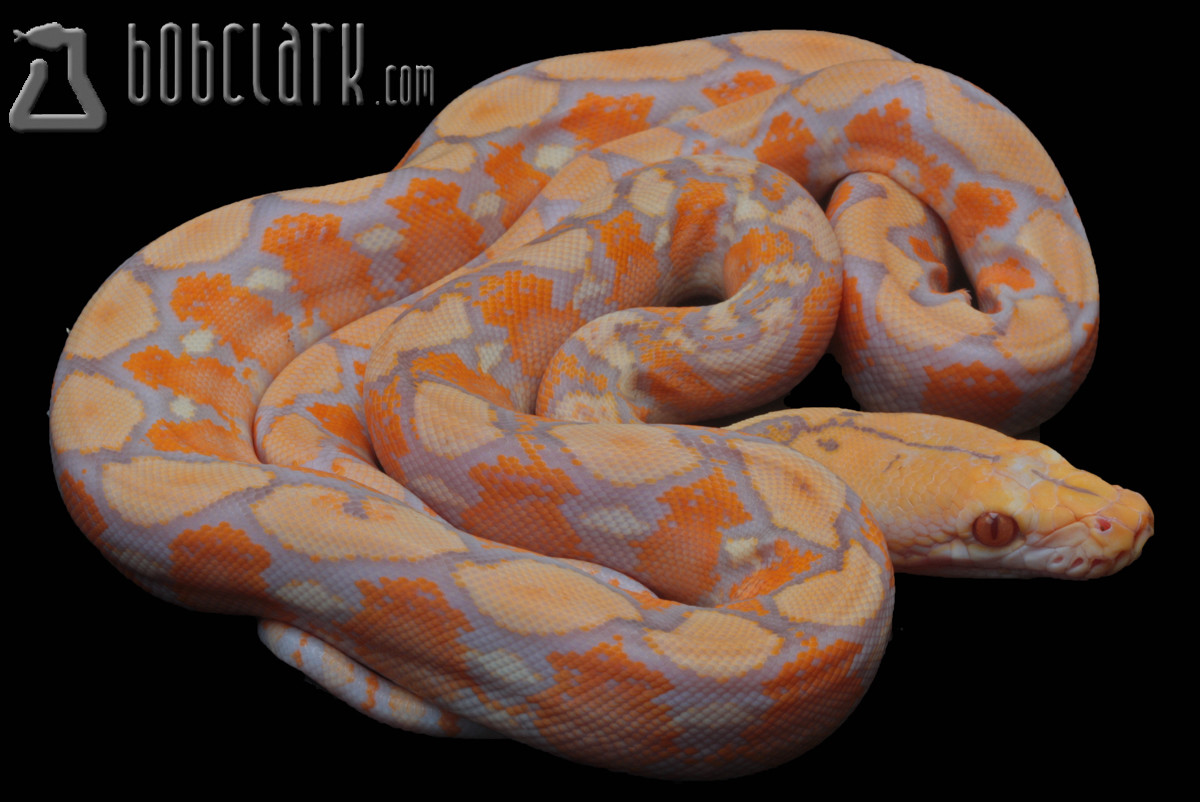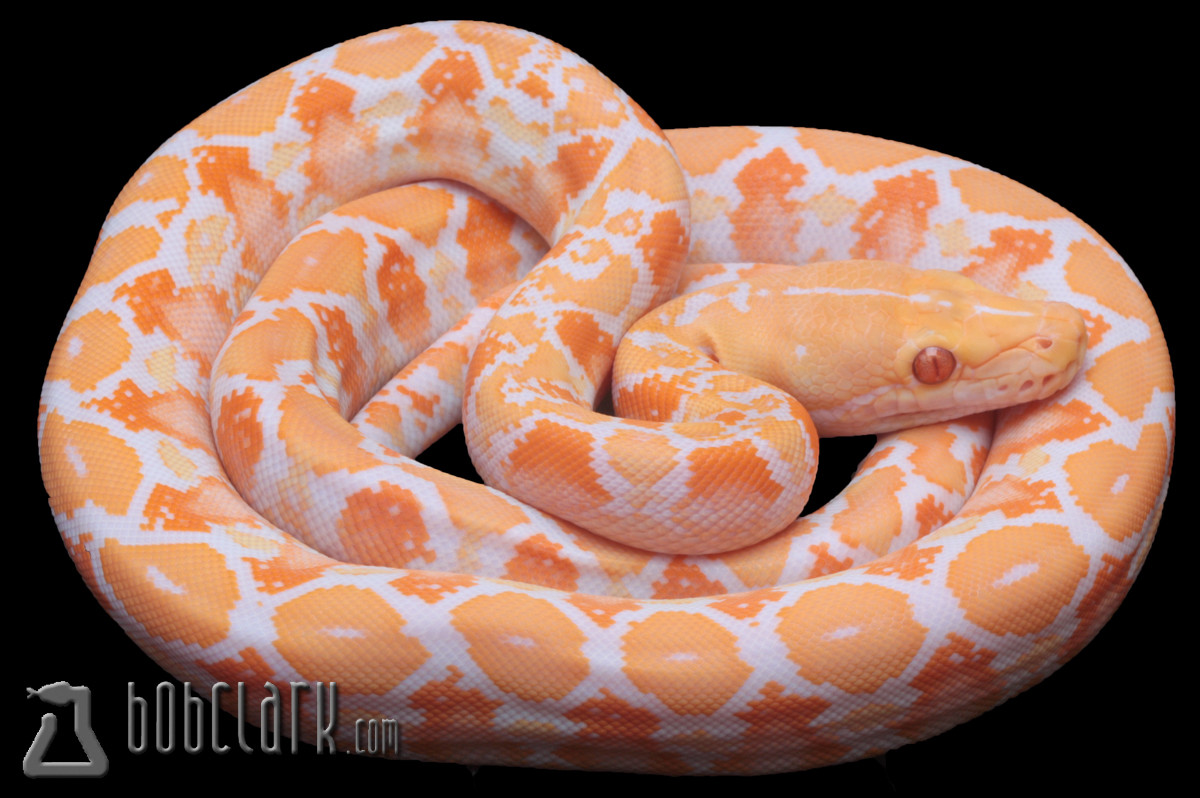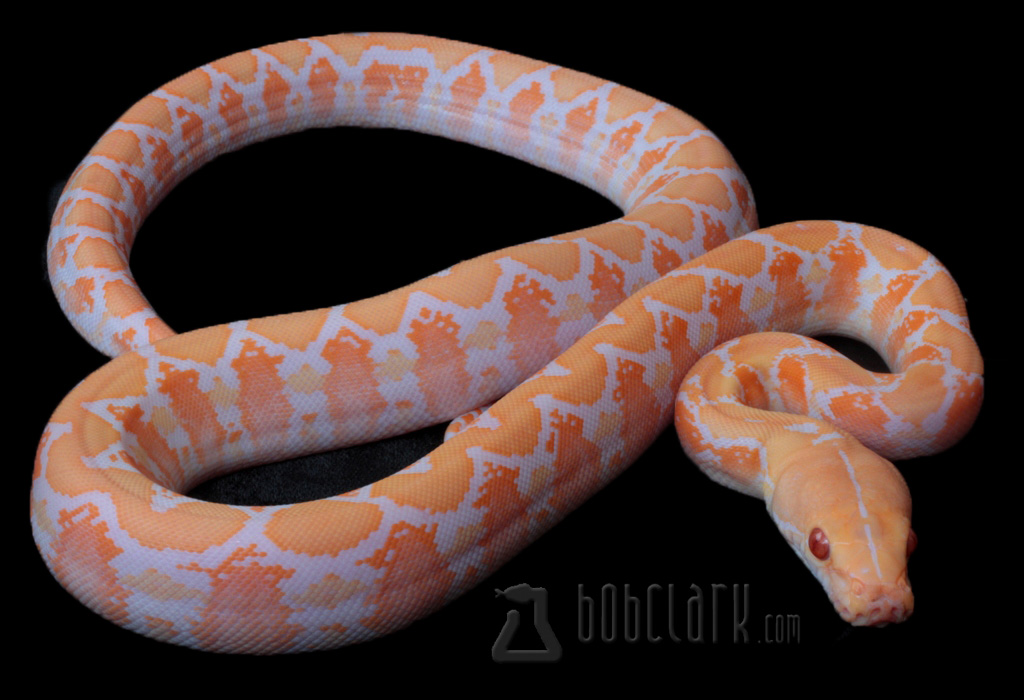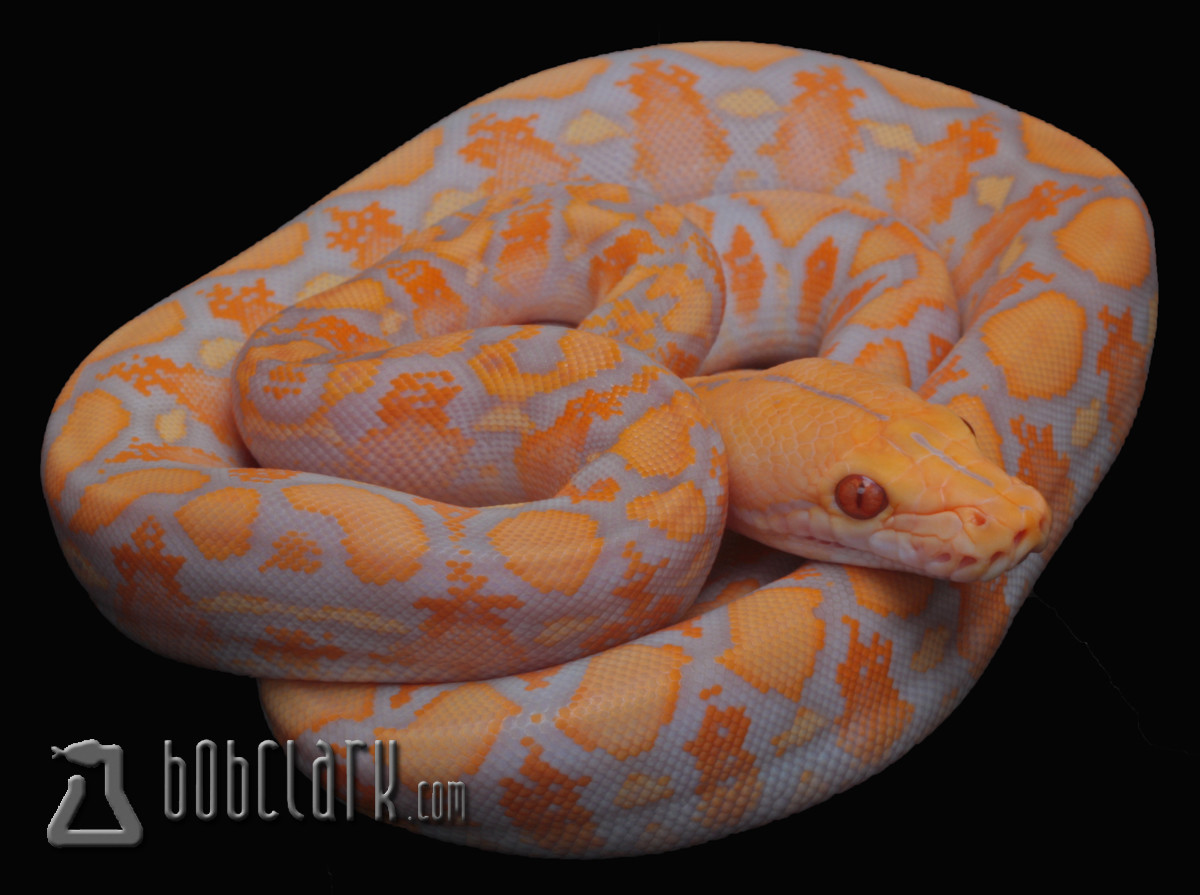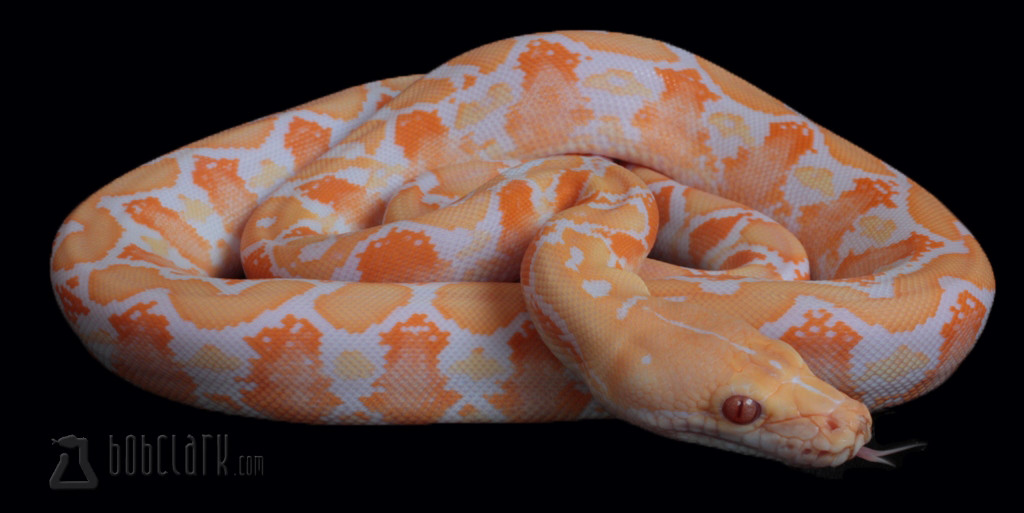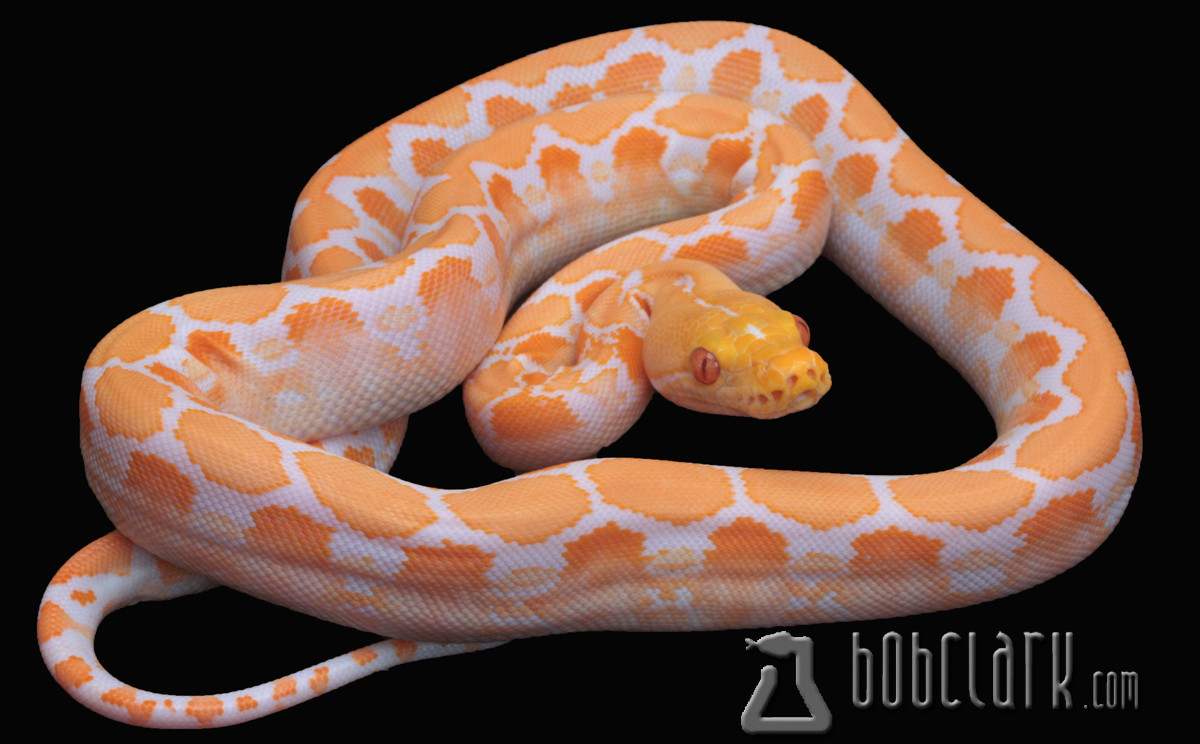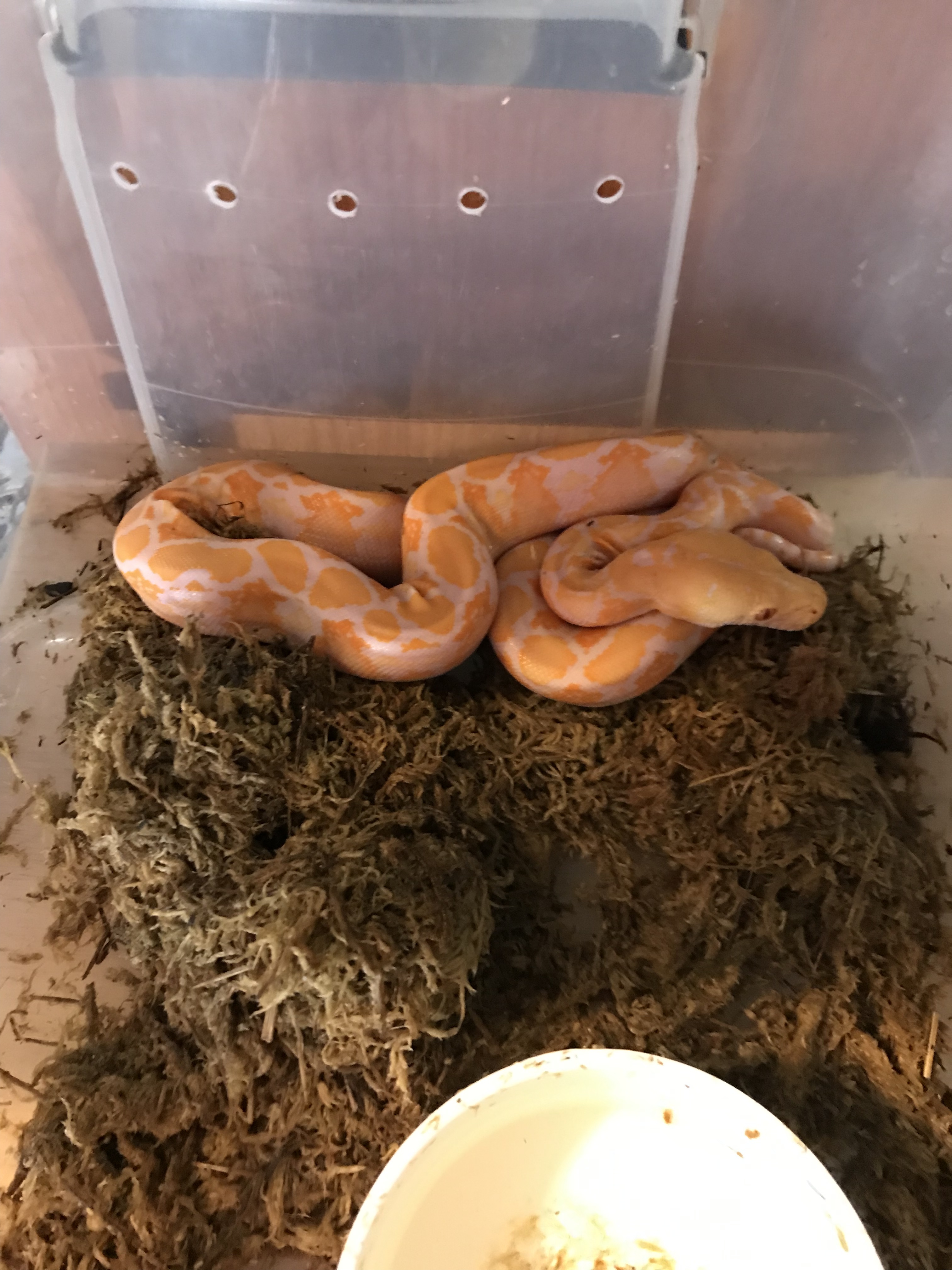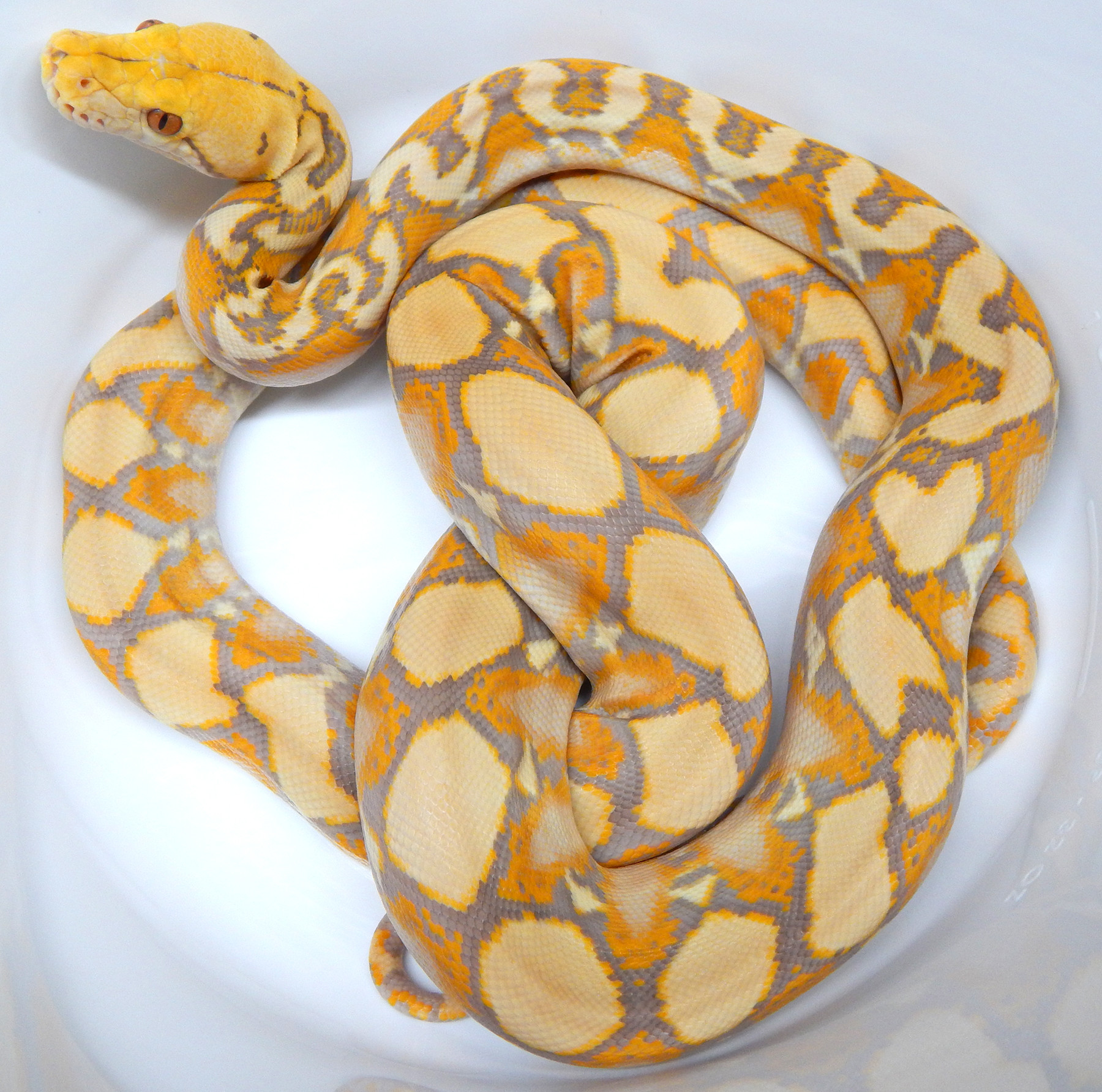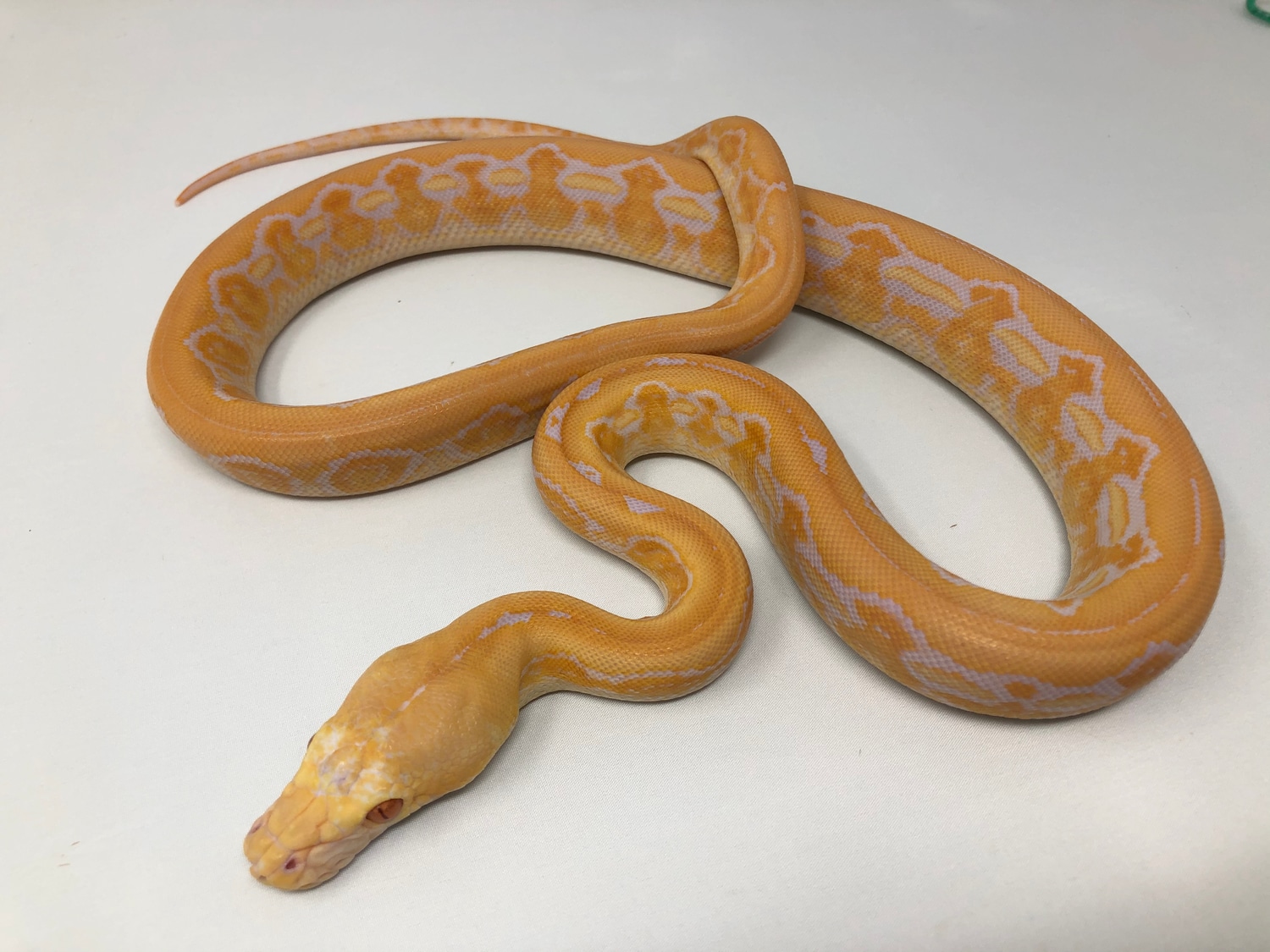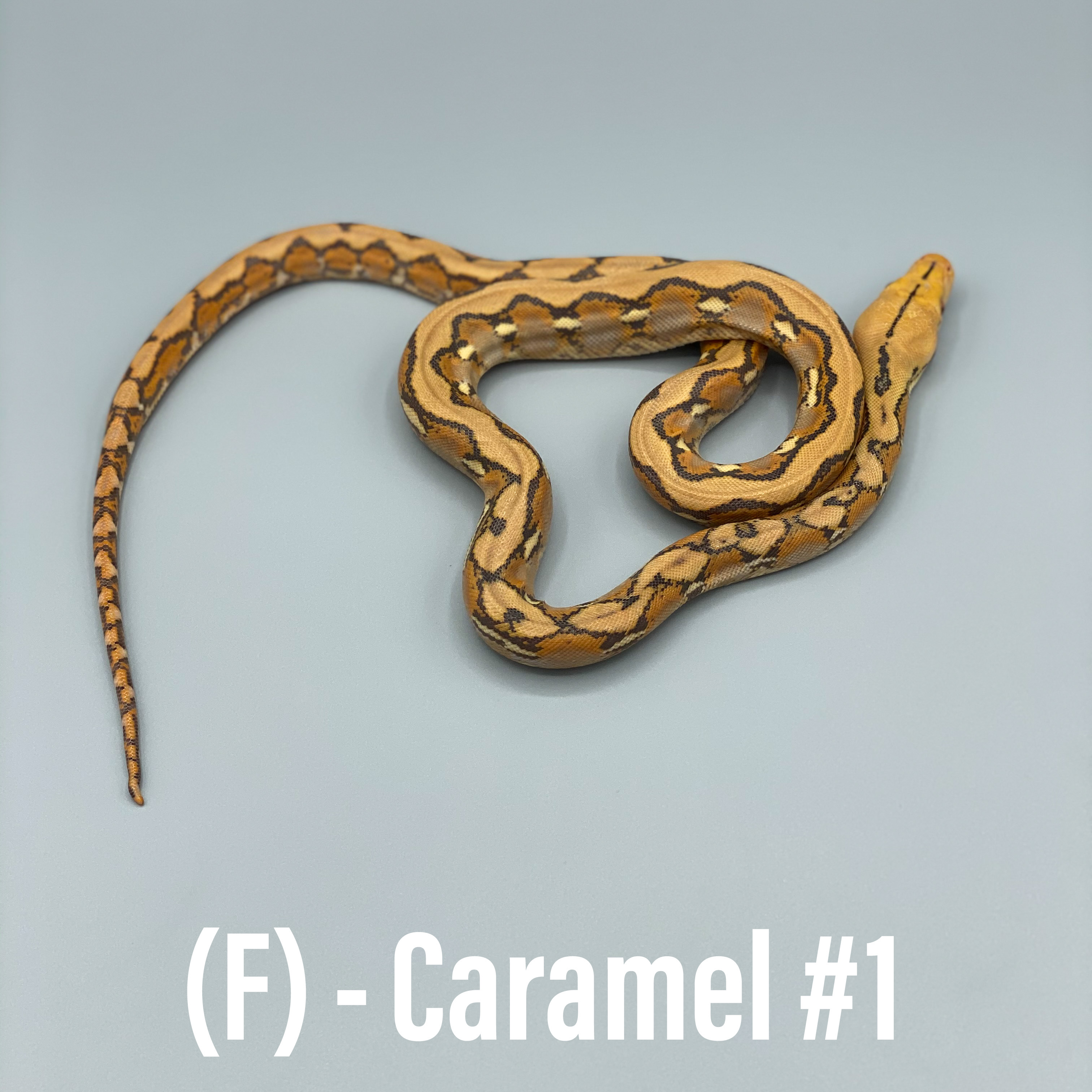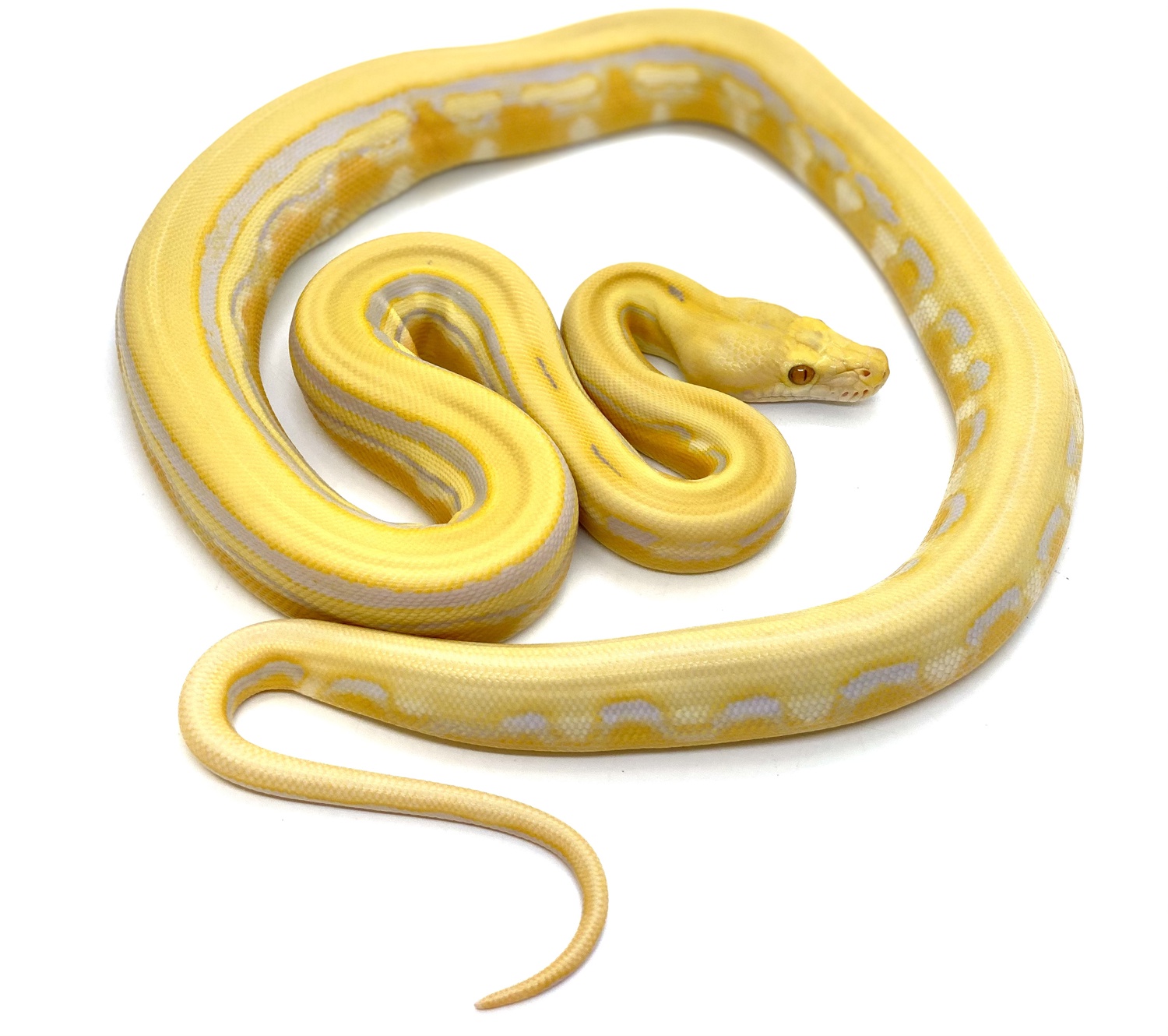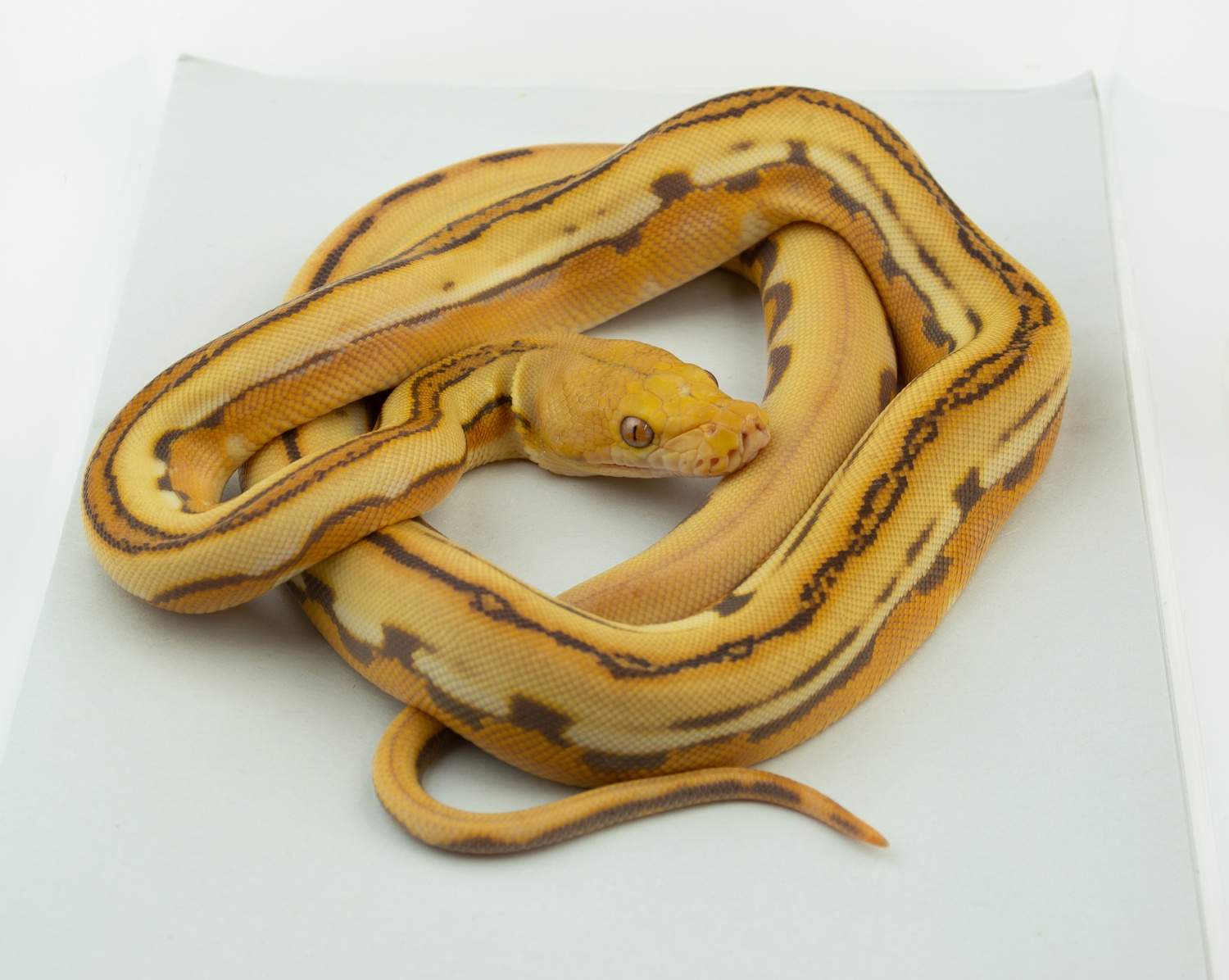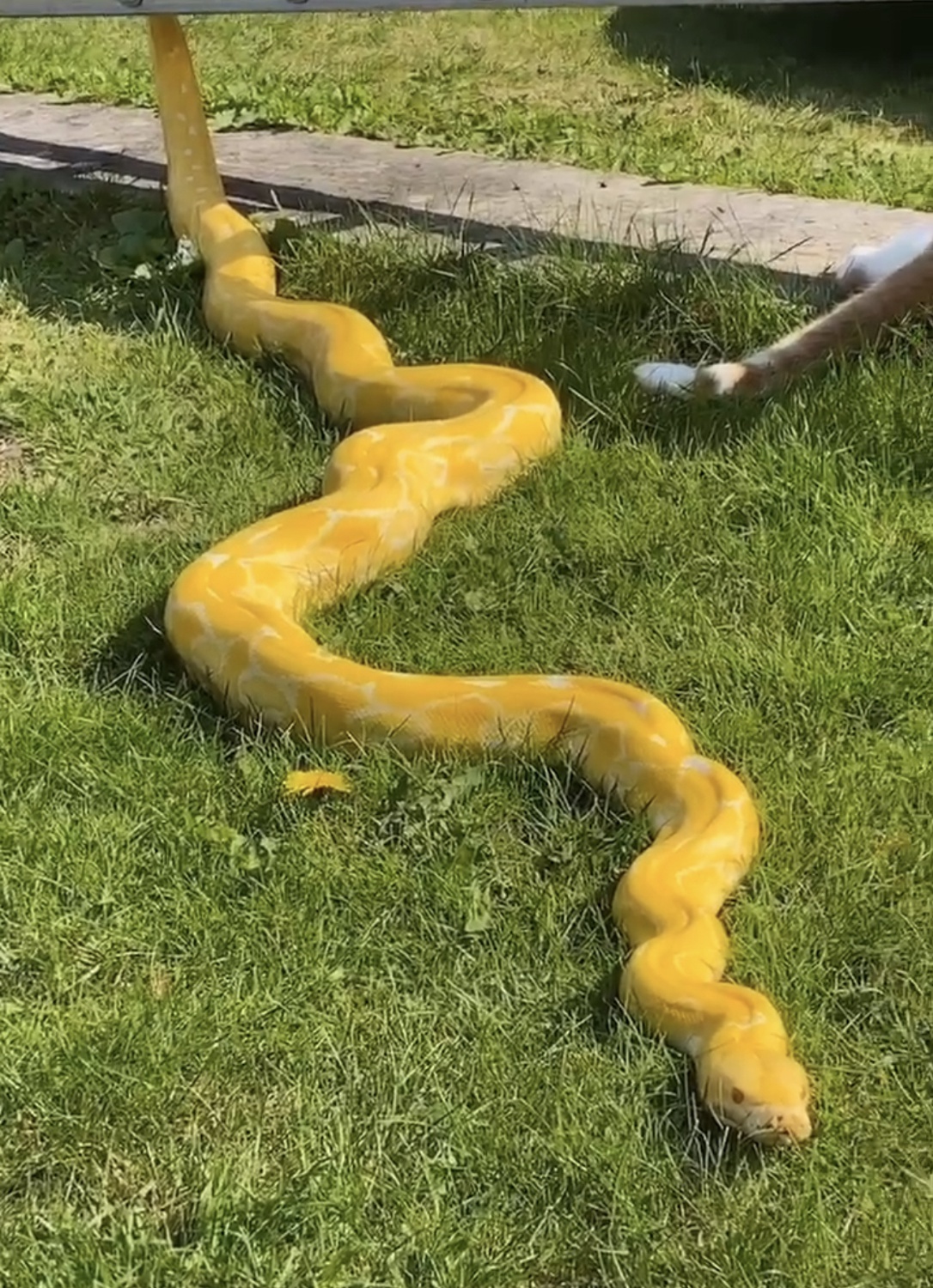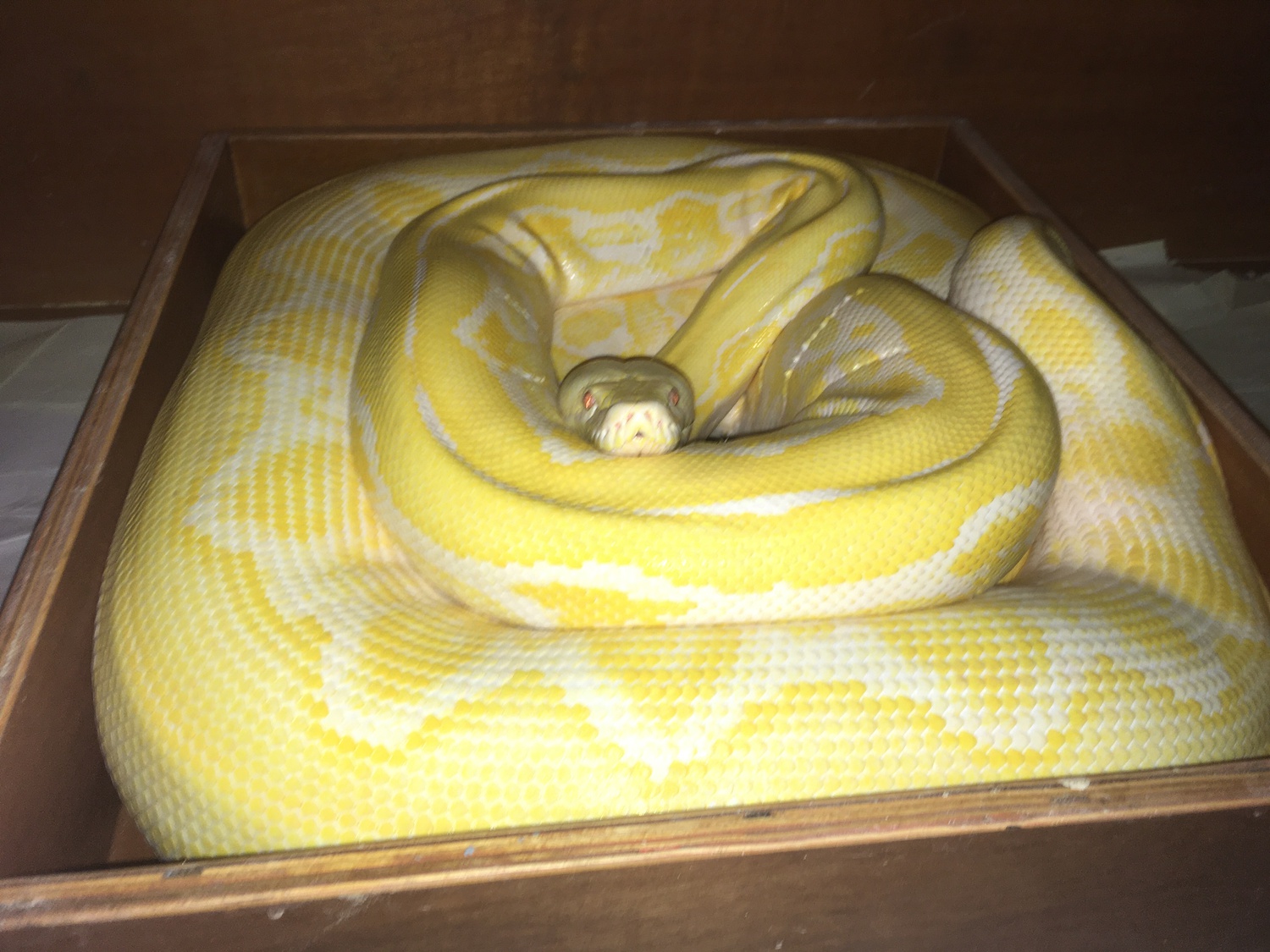Albino
Type: Recessive
First Produced By: Bob Clark
Complex: Complex: T- Albino
Aliases: Clark Albino, Clark Strain 1, T- Albino, Type 1
Issues: Photophobia
Last Updated: 2024-06-29
Do you have any suggestions or corrections for this article?
Click here to contribute feedback
About
The standalone “Albino” in reticulated pythons is an umbrella term used to describe the two recessive mutations (Purple Phase and White Phase) founded by Bob Clark in 1993 in the same animal.
Issues
Photophobia
While the word photophobia literally translates to a "fear of light”. It’s not actually that you are scared of light, but instead, are incredibly sensitive to it. Animals with albinism experience photophobia due to the lack of pigment in the iris, which does not allow the eyes to filter out light.
History
Bob Clark: "During April of 1993, I imported a male amelanistic reticulated python from Malaysia. In this snake, the gold pattern is replaced with bright lemon yellow, the gray areas with white, sometimes with a yellow wash, and the black areas with an almost translucent lavender color. The snake was wild caught when it was about 9 feet long, and it remains so two years later, due largely to the fact that it refused to feed voluntarily for almost exactly two years. In late April of 1995, the snake started feeding voraciously and now rarely refuses a meal. In spite of the snake’s difficult acclimation and its small size, it was observed breeding last spring, even though at that time it had still refused to feed. Heterozygous offspring were produced this year. I hope this morph will be available in the near future.
There is an incredible diversity of colors and patterns in normal wild type pythons. Some purists may frown on the popularity of the captive-propagated variants, believing that these animals are unnatural and somehow less worthy of their attention. If we consider the rest of the animals we keep as pets, indeed all of the organisms that have been associated with humans through history, the production of python color and pattern morphs is typical. There has always been the selection of desirable traits. Consider tropical fish, cage birds, orchids and agriculturally important plants and animals. Few would agree that a chicken with less meat and laying ability is more desirable because it more closely resembles its wild ancestor. The differences in goldfish and carp, and my dog and a wolf are both generally appreciated by the pet-keeping public and people in general. The future almost certainly will give us new python morphs and increased availability of existing ones. I, for one, am excited about the possibilities."
Appearance
Head
The head of the Albino reticulated python is usually completely covered in a vibrant orange, apart from the bright line down the dead center.
Body
The body of the Albino has normal diamond patterning, but the usually dark elements are full of intense oranges and deep yellows.
Tail
The tail of the Albino reticulated python follows the same coloration as the rest of the body.
Proven Lines
No known proven lines
Related Traits
Combos
- Albino Super Sun (Super Sunfire Albino)
- Mochino (100% Het Albino 100% Het Mocha)
- Orange Glow (100% Het Albino 100% Het Caramel Albino (Syntec))
- Ruby Eyed Ivory (Super Platinum Albino)
- Snow (Albino Anerythristic)
